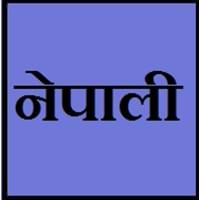Cantonese vs Nepali
- Cantonese have lot of slangs, many of them include words that do not make sense at all and some also have English in them.
- Even though Cantonese and Mandarin are dialects of Chinese, Cantonese has 8 tones instead of Mandarin's 4.
- Before the term "Nepali" was coined, historically the language was first called the Khas language, Gorkhali or Gukhali.
- Nepali has borrowed many loanwords from neighboring Tibeto-Burmese languages.
Cantonese and Nepali Language History
Comparison of Cantonese vs Nepali language history gives us differences between origin of Cantonese and Nepali language. History of Cantonese language states that this language originated in 17th century whereas history of Nepali language states that this language originated in 19 BC. Family of the language also forms a part of history of that language. More on language families of these languages can be found out on Cantonese and Nepali Language History.
Cantonese and Nepali Greetings
People around the world use different languages to interact with each other. Even if we cannot communicate fluently in any language, it will always be beneficial to know about some of the common greetings or phrases from that language. This is where Cantonese and Nepali greetings helps you to understand basic phrases in Cantonese and Nepali language. Cantonese word for "Hello" is 您好 or Nepali word for "Thank You" is धन्यवाद (dhanyabad). Find more of such common Cantonese Greetings and Nepali Greetings. These greetings will help you to be more confident when conversing with natives that speak these languages.
Cantonese vs Nepali Difficulty
The Cantonese vs Nepali difficulty level basically depends on the number of Cantonese Alphabets and Nepali Alphabets. Also the number of vowels and consonants in the language plays an important role in deciding the difficulty level of that language. The important points to be considered when we compare Cantonese and Nepali are the origin, speaking countries, language family, different greetings, speaking population of these languages. Want to know in Cantonese and Nepali, which language is harder to learn? Time required to learn Cantonese is 88 weeks while to learn Nepali time required is 44 weeks.





